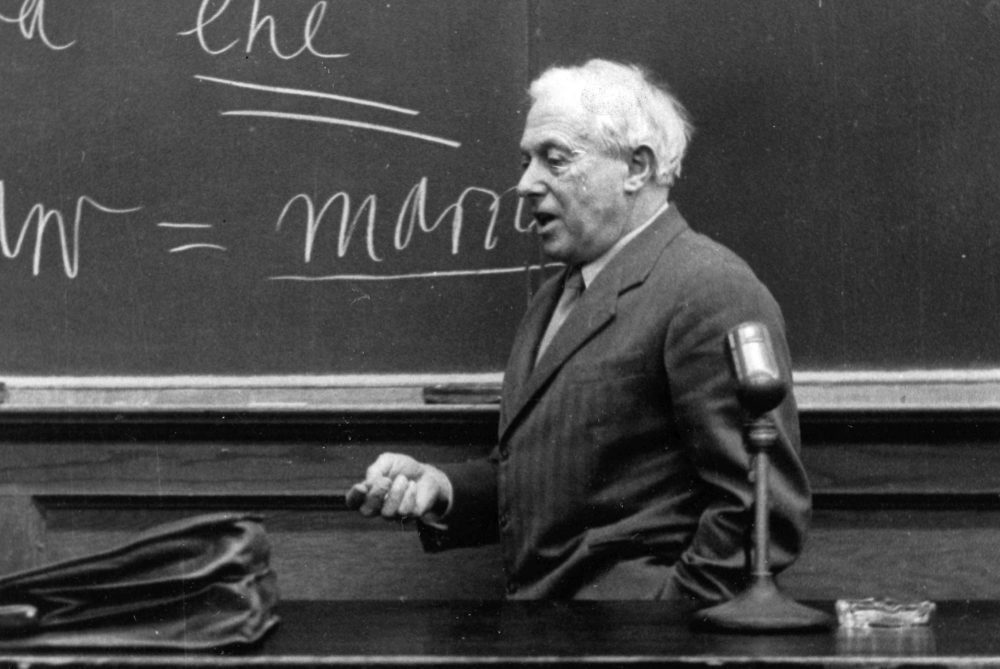Man is not created out of clay and out of the living breath only, but out of the name which another person faithfully, and believingly, and lovingly bestows on him… The power to name is the divine power, gentlemen. And the power to bestow the right title on us comes always to any human being as a revelation.
God is the power that makes men speak. We know nothing else of God. You can explain nature by nature. By electrons, by neutrons, and neutrons by protons, etcetera. You can explain the world without God. You cannot explain your own power to make a declaration of love, and a declaration of war by anything but the divine power to speak… every word you speak has consequences in time.
And these consequences go far beyond your own lifetime, and they originate from time immemorial in the words you use… To speak means to create, or it means to deny creation.
—March 5, 1957

